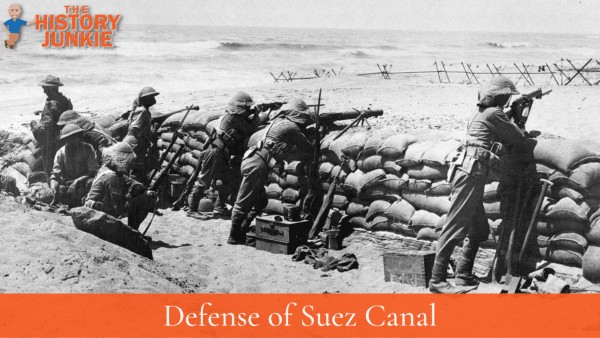In 1915, World War 1 spread to Egypt and Palestine, where the British controlled the Suez Canal, a vital strategic waterway.

Overview
Completed in 1869, the Suez Canal was a vital strategic waterway for Britain and her colonies. It provided the quickest naval route between Europe and the countries around the Indian and Western Pacific oceans.
In January 1915, the Ottoman Empire launched an attack on the Suez Canal. The Turks hoped to surprise the British and seize control of the canal, but they were unsuccessful.
The British were warned of the attack by reconnaissance aircraft, and they were able to repel the Turks.
The Turkish attack failed, but it did have a significant impact on the war. The British were forced to divert troops from the Western Front to defend the Suez Canal.
Aftermath
This weakened the British forces on the Western Front, and it contributed to the Allies' disastrous failure at Gallipoli.
Although the Turks never again attempted to seize control of the Suez, they did, however, succeed in tying up an inordinately large British defense intended to protect the canal against future expeditions.
This British force could (and would) have been placed to better use for the Dardanelles campaign; its absence, therefore, contributed to the Allies' disastrous failure at Gallipoli.
This British force could have been used to better affect the Western Front, and its absence contributed to the Allies' failure at Gallipoli.
